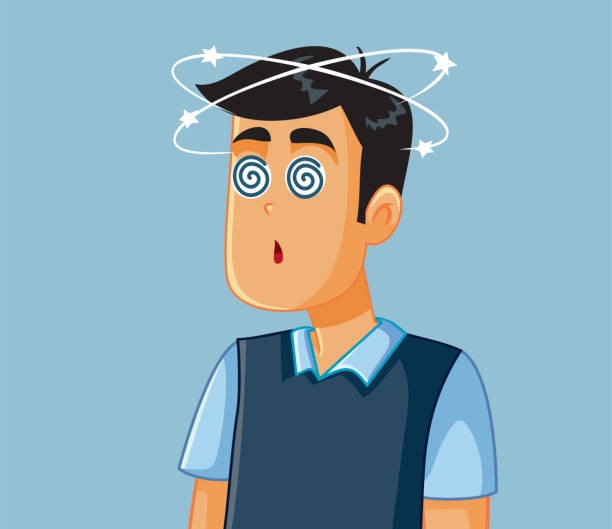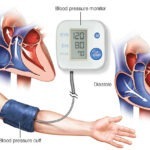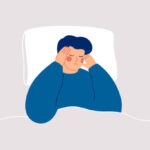Lightheadedness, or presyncope, is a common condition that affects many people. It is the feeling of faintness or wooziness as if you are suddenly about to pass out. It can occur alongside dizziness, which affects balance and makes you feel as though you or your surroundings are spinning. Although lightheadedness and dizziness can feel similar, they have different causes and treatments.
In this blog post, we’ll explain what lightheadedness is, what causes it, what symptoms it may have, and what treatment options are available. We’ll also share some tips and resources to help you prevent and manage lightheadedness and the conditions that cause it.
What is lightheadedness?
Lightheadedness is a term that describes the sensation of being near fainting or losing consciousness. It can affect your vision, hearing, and coordination. It can also make you feel nauseous, sweaty, or pale.
Lightheadedness usually occurs when you stand up quickly from a sitting or lying position. This sudden change in posture can cause a drop in blood pressure, which reduces blood flow to your brain. This can create a temporary lack of oxygen and nutrients to your brain cells, which can make you feel faint.
Lightheadedness often lasts for a few seconds or minutes and goes away when you sit or lie down again. However, some people may experience more frequent or severe episodes of lightheadedness that interfere with their daily activities and quality of life.
What causes lightheadedness?
There are many possible causes of lightheadedness, ranging from mild to serious. Some of the most common causes include:
• Dehydration: Dehydration is the loss of water and electrolytes from your body due to sweating, vomiting, diarrhea, fever, or other illnesses. Dehydration can lower your blood volume and blood pressure, which can affect your blood flow to your brain.
• Low blood sugar: Low blood sugar, or hypoglycemia, is when your blood glucose level drops below normal. This can happen if you skip meals, exercise too much, take too much insulin or other diabetes medications, or drink alcohol. Low blood sugar can affect your brain function and make you feel weak, shaky, hungry, or confused.
• Medications: Some medications can cause lightheadedness as a side effect by lowering your blood pressure, affecting your heart rate, or altering your brain chemicals. Some examples of medications that can cause lightheadedness are:
• Antihypertensives: These are drugs used to treat high blood pressure. They work by relaxing your blood vessels, reducing your heart workload, or removing excess fluid from your body. However, antihypertensives can also cause lightheadedness by lowering your blood pressure too much or by causing dehydration or electrolyte imbalance.
• Antidepressants: These are medications that are used to treat depression and other mood disorders. They work by increasing the levels of neurotransmitters such as serotonin, dopamine, and norepinephrine in your brain. However, antidepressants can also cause lightheadedness by affecting your blood pressure heart rate or brain function.
• Antihistamines: These are drugs used to treat allergies and colds. They work by blocking the action of histamine a chemical that causes inflammation Itching and sneezing. However antihistamines can also cause lightheadedness by causing drowsiness dry mouth or blurred vision.
• Medical conditions: Some medical conditions can cause lightheadedness by affecting your blood pressure, heart function, brain function, or metabolism. Some examples of medical conditions that can cause lightheadedness are:
• Anemia: Anemia is a condition that occurs when you have a low number of red blood cells or hemoglobin in your blood. Hemoglobin is a protein that carries oxygen from your lungs to your tissues. Anemia can cause fatigue, weakness, shortness of breath, and pale skin.It can also affect your blood flow to your brain and make you feel faint.
• Heart arrhythmia: Heart arrhythmia is a condition that occurs when your heart beats too fast, too slow, or irregularly. Heart arrhythmia can affect your heart’s ability to pump blood effectively to your body and brain. It can also cause chest pain, palpitations, shortness of breath, or fainting.
• Vertigo: Vertigo is a condition that occurs when there is a problem with your inner ear, which controls your balance and orientation. Vertigo can cause the false sensation that you or your surroundings are spinning or moving. It can also cause nausea, vomiting, headache, or hearing loss. Vertigo can make you feel lightheaded dizzy or unsteady.
What are the symptoms of lightheadedness?
The symptoms of lightheadedness vary depending on its cause, severity, and duration. Some common symptoms of lightheadedness are:
• faintness or near-fainting
• unsteadiness or loss of balance
• spinning or motion sickness
• nausea or vomiting
• sweating or clamminess
• blurred vision or tunnel vision
• ringing in the ears or loss of hearing
• confusion or disorientation
What are the treatment options for lightheadedness?
The treatment options for lightheadedness depend on its cause,
severity,
and impact on your daily life.
Some common treatment options for lightheadedness are:
• Self-care: Self-care measures can help relieve mild to moderate lightheadedness caused by temporary factors such as dehydration, low blood sugar, medications, or positional changes. Some self-care measures include:
• Sitting or lying down until the episode passes
• Drinking plenty of water to stay hydrated and replenish electrolytes
• Eating something sugary or with carbohydrates to raise blood sugar levels
• Avoiding caffeine, alcohol, tobacco, and illegal drugs that can affect blood pressure and brain function
• Getting enough sleep and rest to reduce stress and fatigue
• Practicing deep breathing exercises to calm down and regulate breathing
• Medical care: Medical care may be needed for severe, persistent, or recurrent lightheadedness caused by an underlying condition or disease. Some medical care options include:
• Seeking emergency care if you have signs of a serious condition such as chest pain, shortness of breath, fainting, confusion, seizures, or loss of consciousness
• Consulting your doctor if you have signs of an infection such as fever, chills, sore throat, cough, or rash
• Consulting your doctor if you have signs of a disease such as anemia, heart arrhythmia, vertigo, or diabetes
• Getting a diagnosis through physical examination, medical history, blood tests, urine tests, imaging tests, electrocardiogram (ECG), echocardiogram (ECHO), holter monitor (HM), tilt table test (TTT), vestibular testing (VT), or other tests
• Getting a treatment based on your diagnosis through prescription medications supplements injections devices surgery or other therapies
Conclusion
Lightheadedness is a common condition that affects many people. It is the feeling of faintness or wooziness as if you are suddenly about to pass out. It can occur alongside dizziness which affects balance and makes you feel as though you or your surroundings are spinning. Although lightheadedness and dizziness can feel similar they have different causes and treatments.
We hope this blog post has helped you understand what lightheadedness is and how to handle it. Remember that lightheadedness is not always normal but it may indicate an underlying problem that needs medical attention. If you have any questions or concerns about your lightheadedness or health please contact your doctor for professional advice.



